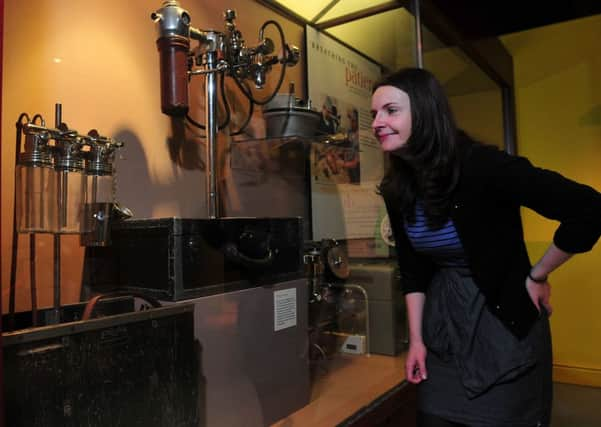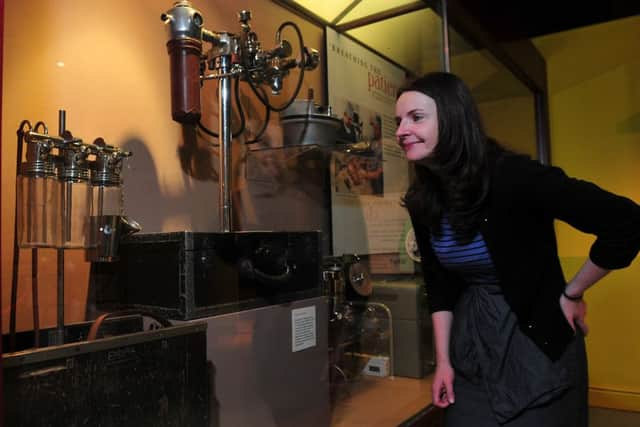New trail marks 100 years since First World War wounded came to Leeds


Few of 80 men disembarking a hospital train at the now-gone Midland Station could walk, and some had injuries so severe they were covered entirely from view.
The wounded soldiers from Flanders and France, who were met by the city’s Lord Mayor and a crowd of more than 6,000, were destined for a hastily set-up military hospital at Beckett’s Park, earmarked years earlier as a possible site to treat the injured should war break out. T
Advertisement
Hide AdAdvertisement
Hide AdThousands would follow as military hospitals opened across the city to accommodate the casualties of war.


To mark the anniversary, pupils from a Leeds school have worked with the Thackray Medical Museum and a historian to create a new heritage trail, ‘It’s a long way back to Beckett Street’, telling the story of a fictional soldier and the treatment he would have received.
The Beckett Street hospital was only open for a few months before the need for a bigger, more well-equipped building became apparent. That building was Leeds Union Workhouse, a building with a “fascinating” history which became the East Leeds Military Hospital in 1915. It now houses the Thackray museum, part of St James’s Hospital.
For historian Berwyn Tinsey, a heritage trail designer from Discover Medical London, the project has been the chance to open up the past of not just the city’s military hospitals, but an area, Harehills, with a “remarkable” history.
Advertisement
Hide AdAdvertisement
Hide AdHe said: “As a workhouse, the building was a fearful place, with high walls, but the war opened it up to the community and people were encouraged to visit.”
The trail tells the story of the character Gunner Edward Smith, who like those first soldiers arriving at Midland Station, would have signed up before war broke out. Children from The Cooperative Academy of Leeds worked with Mr Tinsey using archives from the University of Leeds to create his story.
Real life experiences of patients were also used, alongside an extraordinary three-hour recording of military nurse Louie Johson, who worked at the hospital, obtained from the Imperial War Museum.
The trail compliments the Thackray’s current exhibition Recovery? From Flanders to Afghanistan, which provides a compelling insight into the effects of war on medicine.
Advertisement
Hide AdAdvertisement
Hide AdOver the next three years Thackray hopes to adapt the trail to tell how the hospital developed over the war years, which included a visit from the King. It is also hoping to purchase a blue plaque to mark the building’s military hospital past, Brigid Bradley, exhibition development officer said. “We’re hoping to create a real legacy from the project,” she added.
The first trails will be held on September 27. To book visit www.thackraymedicalmuseum.co.uk or call 0113 244 4343.
A LASTING legacy of York’s Normandy veterans will be created as part of a £1.5m lottery funded project.
To mark 70 years since the D-Day landings, Explore York Libraries and Archives is collecting memories from members of the York Normandy Veterans Association, as part of the York: Gateway to History project.
Advertisement
Hide AdAdvertisement
Hide AdLetters, photographs and medals which tell the personal stories of life during the Second World War will be made accessible to the public for the first time at York Explore library next year.
Nick Beilby, from the Association, said the project would preserve the achievements of veterans for future generations.